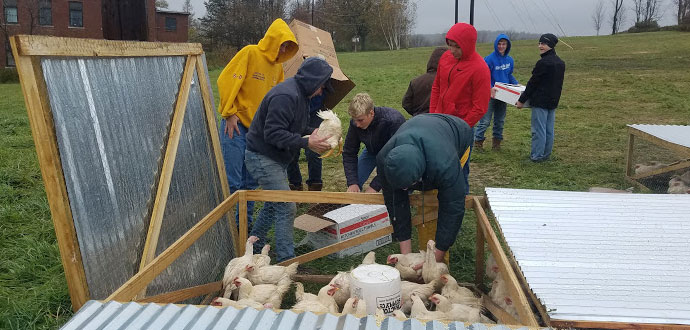 “When the shadows of this life have gone, I’ll fly away. Like a bird from these prison walls I’ll fly, I’ll fly away.”
“When the shadows of this life have gone, I’ll fly away. Like a bird from these prison walls I’ll fly, I’ll fly away.”
A five gallon bucket half full of feed swinging from the arm of a teacher as if a censer of incense in front of a religious procession. A student juggling fire clubs behind, two more jugglers but with bright red, yellow, and blue clubs floating through the air, a wooden cross of victory from the days previous competition. A senior prefect holding a large box surrounded by his roommates, nine other prefects behind him, each holding a similar sized box, each surrounded by his roommates, everyone belting: “Like a bird from these prison walls I’ll fly, I’ll fly away.” Beginning from the large red barn with silver roof, the procession wended its way up the driveway, through the parking lot, around the basketball court, and into the first field above the great red-brick building we call our school.
“Old Mc-Donald had a farm ei-ei-o, and on that farm he had a chicken, ei-ei-o, with a bock-bock here and a bock-bock there, here a bock, there a bock, everywhere a bock bock…”
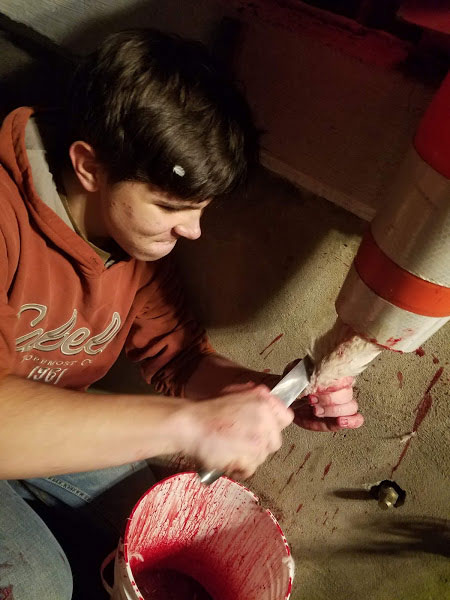 In the field in the top corner before the brush line stood a wood-framed structure, with criss-cross wire and metal roof, only two feet high, but twelve feet long and ten feet wide. “Seniors, come forth! Room 21!” The teacher shouted out, took the box from the prefect of room 21’s arms, opened the box, and lowered it into the pen. “Tweet! Tweet! Tweet!” Out came fifteen little chicks. “Room 22!” “Tweet! Tweet! Tweet!” Another fifteen little chicks came forth. “Room 23!” Again, fifteen two-week old chicks slid out and hazarded the jungle of 4 inch tall grass. “Room 24!” and onwards came all the rooms with all the chicks.
In the field in the top corner before the brush line stood a wood-framed structure, with criss-cross wire and metal roof, only two feet high, but twelve feet long and ten feet wide. “Seniors, come forth! Room 21!” The teacher shouted out, took the box from the prefect of room 21’s arms, opened the box, and lowered it into the pen. “Tweet! Tweet! Tweet!” Out came fifteen little chicks. “Room 22!” “Tweet! Tweet! Tweet!” Another fifteen little chicks came forth. “Room 23!” Again, fifteen two-week old chicks slid out and hazarded the jungle of 4 inch tall grass. “Room 24!” and onwards came all the rooms with all the chicks.
On this grand day, September 14th, the feast of the Exaltation of the Cross, before the banquet in its honor, these small birds were led from their walled brooder in the barn out into the pastures where they ranged for six weeks on fresh forage, fresh bugs, and a hearty portion of feed each day to help them grow into healthy big breasted chickens. These chickens served as the main course for the next great banquet of the year — the Feast of All Saints.
By the beginning of Christmas break the boys, with the help of Mr. Burger, had raised, slaughtered, and butchered over 325 chickens and fourteen turkeys. The underclassmen of each dorm room worked chicken chores for a week at a time. Every morning at the break of dawn members of the room met Mr. Burger in the back parking lot for chores. The boys filled five gallon buckets with feed and water, after which they made their way up to the chicken pens. First they took out the feeders and waterers. Then they very carefully lifted the pen (enduring an annoying turkey peck here and there) a couple inches off the ground and proceeded to move them to a completely fresh area of grass. If the ground was in a low spot with standing water, then the pen was moved to higher ground to ensure a healthy happy chicken. If a chicken had crippling foot problems from the extremely wet ground this fall, then they were brought to the barn and put into a hospital pen to recuperate under a heat lamp while being fed extra riboflavin and beef liver. Many resurrected, but some did not. In every case, the boys learned that life, suffering and death are real and powerful…even when it’s a chicken.
When the chickens reached eight weeks of age Mr. Burger led different groups of boys in teams of ten to process the birds. Each session began with a prayer of thanksgiving to God, the author of life. Then Mr. Burger proceeded to show the boys how to properly slaughter a chicken so that it bled out completely. Three boys kept the kill cone station moving in a timely fashion, one boy scalded the birds, four boys plucked the birds, and two boys worked with Mr. Burger eviscerating the birds. After a little over an hour the boys rotated positions so to ensure everyone the chance of learning the different aspects of the butchering process.
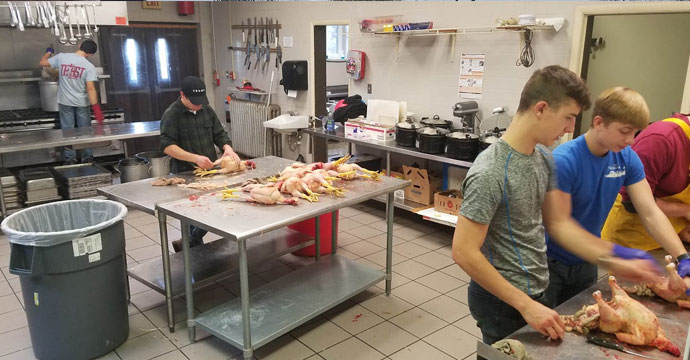 For Robin Hood Days in October, the freshmen class slaughtered and butchered 35 birds for the Saturday feast. The boys working as chefs roasted the chickens over a fire of coals. For the All Saints Day banquet in November, the sophomore class slaughtered and butchered 75 birds for the banquet, and did a fabulous job cooking and serving our autumnal feast. In several sessions over the course of the following weeks, the underclassmen processed all the final batches of chickens and turkeys. By the beginning of Christmas break, the last turkey was put in the freezer. These birds will continue to serve the boys as meals for several hearty dinners to come.
For Robin Hood Days in October, the freshmen class slaughtered and butchered 35 birds for the Saturday feast. The boys working as chefs roasted the chickens over a fire of coals. For the All Saints Day banquet in November, the sophomore class slaughtered and butchered 75 birds for the banquet, and did a fabulous job cooking and serving our autumnal feast. In several sessions over the course of the following weeks, the underclassmen processed all the final batches of chickens and turkeys. By the beginning of Christmas break, the last turkey was put in the freezer. These birds will continue to serve the boys as meals for several hearty dinners to come.
Whether we have partaken in the slaughter of the animals we eat or whether we have not, a sacrifice was made every time we eat the carnis or flesh of an animal. The life of a creature was taken whether we remember it or not. As Wendell Berry writes: “To live, we must daily break the body and shed the blood of Creation. When we do this knowingly, lovingly, skillfully, reverently, it is a sacrament. When we do it ignorantly, greedily, clumsily, destructively, it is a desecration.” This autumn’s maiden voyage of Gregory the Great into the fields of agriculture gave the boys the visceral experience not only of raising their meal, but slaughtering and butchering that which they raised–sacrificing an animal’s life so that they and their brothers might have more life, and live richer lives: lives full of remembrance, lives full of gratitude, lives fully embracing reality, lives fully embracing the truth. “Then you will know the truth, and the truth will set you free.”
“Like a bird from these prison walls I’ll fly, I’ll fly away.”
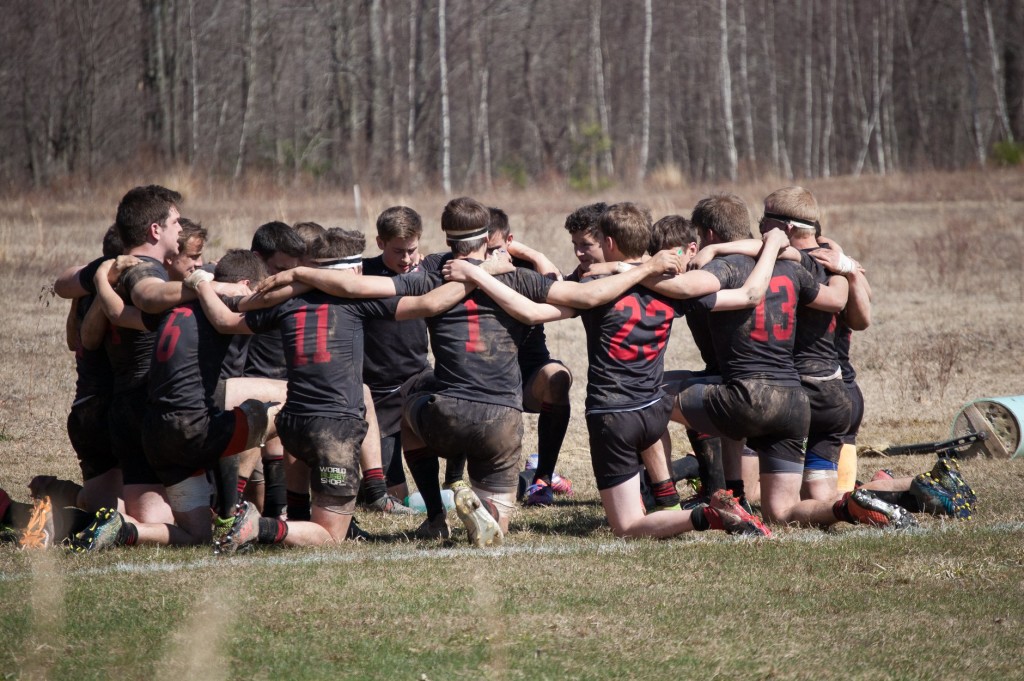
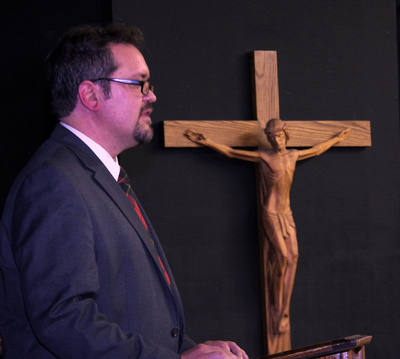 Esteemed Fathers and Faculty, Dear Students and Alumni, Kind Friends and Companions,
Esteemed Fathers and Faculty, Dear Students and Alumni, Kind Friends and Companions,